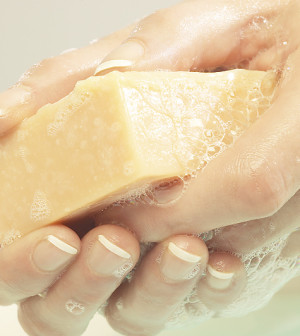- Could Your Grocery Store Meat Be Causing Recurring UTIs?
- Are You Making This Expensive Thermostat Error This Winter?
- Recognizing the Signs of Hypothyroidism
- 10 Strategies to Overcome Insomnia
- Could Artificial Sweeteners Be Aging the Brain Faster?
- Techniques for Soothing Your Nervous System
- Does the Water in Your House Smell Funny? Here’s Why
- Can a Daily Dose of Apple Cider Vinegar Actually Aid Weight Loss?
- 6 Health Beverages That Can Actually Spike Your Blood Sugar
- Treatment Options for Social Anxiety Disorder
Keep It Clean After Ear Piercings


If you get your ears pierced, you need to take steps to protect against infection, an expert says.
“It’s important to remember that pierced skin is skin that has been wounded, leaving it vulnerable to infection,” Dr. Elizabeth Martin, a dermatologist in Hoover, Ala., said in an American Academy of Dermatology news release.
“To minimize the risks, always go to a trained professional for piercing, use hypoallergenic earrings and keep your newly pierced ears clean,” she advised.
Always wash your hands before touching newly pierced ears, and wash your ears with soap and water at least once a day, Martin said.
She also recommends that you use a cotton ball or pad dipped in alcohol to gently clean the skin around the piercings twice a day. This will protect against germs and prevent scabbing. A thin coat of petroleum jelly around the piercings may also be beneficial.
You should leave starter earrings in your ears for six weeks or more, even at night. Your piercings may close if you remove the earrings too soon, Martin said. Twist the earrings a few times a day to help keep the pierced holes open.
“After piercing your ears, keep an eye on them. If they become very tender, red or if the holes ooze yellowish liquid, see a board-certified dermatologist, as you may have an infection,” Martin said.
Ear piercing may be unsuitable for some people, including those who have a personal or family history of keloid scars after skin injuries.
More information
The American Academy of Family Physicians has more about body piercing.
Source: HealthDay
Copyright © 2026 HealthDay. All rights reserved.










